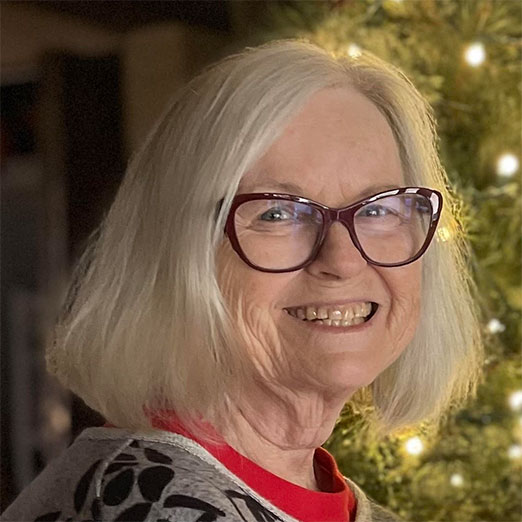
After receiving her degree in nursing from the University of Arizona in Tucson in 1969, Susan Leigh served as a Lieutenant in the U.S. Army Nurse Corps. Seven months after completing a tour of duty in the Mekong Delta in South Vietnam, she was diagnosed with Hodgkin lymphoma and treated with some of the earliest forms of chemotherapy and radiation. This experience influenced her decision to enter the newly founded field of oncology nursing and began this phase of her career working as a research nurse in the new Department of Hematology/Oncology at the University of Arizona Medical Center.
For the past 35 years, Susan has focused her efforts on national advocacy work with special emphasis on the long-term and late effects of cancer treatment. Her most cherished involvement has been with the National Coalition for Cancer Survivorship (NCCS) as a founding member and past president. She has also been actively involved with many professional organizations, including the Oncology Nursing Society and the National Cancer Institute.
Susan also worked as a Survivorship consultant and educator with Arizona Oncology, a multi-site community practice in Tucson, until multiple treatment-related cardiac complications made it difficult to fulfill work obligations and accelerated her decision to retire.
In addition to surviving Hodgkin lymphoma (1972), she has also been treated for breast cancer (1991), bladder cancer (1995), and, more recently, targeted radiation therapy for early-stage lung cancer (2016). Also, since 2013 she has been dealing with multiple cardiac issues that are considered fallout from her original cancer treatments. Meanwhile, she continues to promote awareness about the challenges of surviving cancer, and advocates for survivorship care planning and continual, systematic follow-up of long-term survivors.
This past October, Susan was the successful recipient of a new aortic valve through the TAVR procedure (transcatheter aortic valve replacement). This has been a life-saving medical procedure for long-term cancer survivors who are ineligible for open heart surgery.